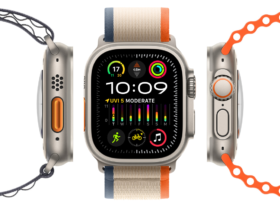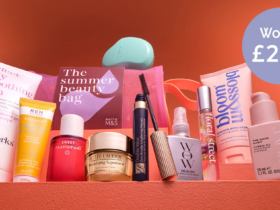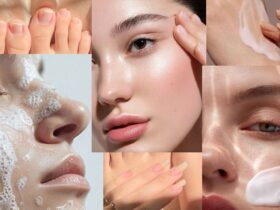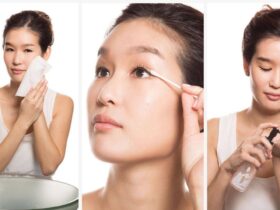Achieving healthy, glowing skin is a goal that many strive for, but what often goes unnoticed is that maintaining good skin isn’t just about what you do — it’s also about what you avoid. There are numerous habits and external factors that can negatively impact your skin, causing premature aging, acne, dullness, and other unwanted skin conditions. Here’s a comprehensive guide on things to avoid to get better skin, which can help you transform your skincare game and promote lasting radiance.
1. Avoid Over-Exfoliating Your Skin
Exfoliating helps remove dead skin cells and promotes cell turnover, but overdoing it can damage your skin barrier. When you exfoliate too often, especially with harsh scrubs or acids, it can strip away the natural oils that protect your skin. This can lead to redness, irritation, and even increased breakouts. Stick to gentle exfoliation 2-3 times a week, depending on your skin type, and use mild, non-abrasive products.
2. Steer Clear of Sugary Foods
Your diet has a direct impact on the health of your skin, and one of the worst offenders is sugar. Consuming too much sugar causes a spike in insulin levels, which triggers inflammation throughout your body. This inflammation leads to the breakdown of collagen and elastin, proteins that keep your skin firm and youthful. Over time, this results in sagging skin, wrinkles, and uneven texture. Try to reduce your intake of sugary snacks, sodas, and processed foods, and replace them with skin-friendly options like fruits, vegetables, and whole grains.
3. Say No to Smoking
Smoking is one of the leading causes of premature skin aging. Nicotine narrows the blood vessels in the outer layers of your skin, impairing blood flow. This decreases the delivery of oxygen and essential nutrients, leading to dull, discolored skin. Additionally, smoking reduces collagen production, which accelerates the appearance of wrinkles, especially around the mouth and eyes. Quitting smoking not only improves your overall health but also helps your skin regain its natural glow and elasticity.
4. Avoid Excessive Sun Exposure
The sun is both a friend and a foe to your skin. While a little bit of sun exposure is important for vitamin D production, overexposure is one of the leading causes of skin damage. UV rays can penetrate the skin and damage collagen and elastin, leading to premature aging, dark spots, and even skin cancer. Always wear sunscreen with at least SPF 30, even on cloudy days, and reapply it every 2-3 hours when you’re outside. Wearing protective clothing, hats, and sunglasses can also shield your skin from harmful rays.

5. Don’t Ignore Your Sleep
Sleep is your body’s time to repair and rejuvenate, and when you don’t get enough of it, your skin suffers. During deep sleep, your skin goes into repair mode, regenerating new cells and producing more collagen. Skipping on sleep increases the levels of stress hormone cortisol in the body, leading to breakouts, dull skin, and dark circles under the eyes. Aim for 7-9 hours of quality sleep every night to wake up with refreshed, glowing skin.
6. Avoid Touching Your Face
Your hands come into contact with countless surfaces throughout the day, picking up dirt, oil, and bacteria. When you touch your face, you transfer these impurities onto your skin, which can lead to clogged pores, breakouts, and irritation. Avoiding unnecessary touching of your face is a simple yet effective way to keep your skin clean and clear. If you must touch your face, make sure to wash your hands thoroughly first.
7. Say No to Dehydration
Drinking enough water is crucial for keeping your skin hydrated from the inside out. Dehydration can cause your skin to become dry, tight, and flaky, making fine lines and wrinkles more visible. Water helps maintain your skin’s elasticity and promotes a healthy glow. Make sure to drink at least 8 glasses of water a day and incorporate water-rich foods like cucumbers, watermelon, and oranges into your diet.
8. Don’t Overload Your Skin with Products
While skincare products are essential for maintaining healthy skin, using too many products at once can have the opposite effect. Layering multiple serums, moisturizers, and treatments can overwhelm your skin, leading to irritation, clogged pores, and breakouts. It’s important to simplify your skincare routine and focus on products that suit your skin type. Stick to the basics — cleanser, moisturizer, sunscreen — and incorporate additional treatments as needed.
9. Avoid Hot Showers
Hot water strips your skin of its natural oils, leading to dryness and irritation. While a hot shower might feel relaxing, it can wreak havoc on your skin by disrupting its moisture barrier. This can lead to itchy, flaky skin and even exacerbate conditions like eczema. Opt for lukewarm water instead, and keep your showers short to prevent moisture loss.
10. Say No to Stress
Stress can take a toll on your entire body, and your skin is no exception. High levels of stress trigger the release of cortisol, a hormone that increases oil production in the skin, leading to breakouts and clogged pores. Stress can also weaken your skin’s barrier, making it more prone to irritation and sensitivity. Incorporating stress-relieving activities like yoga, meditation, or even a simple walk can help reduce cortisol levels and improve your skin’s overall health.
11. Avoid Skipping Sunscreen
One of the most common mistakes people make is skipping sunscreen, especially on cloudy days or during winter months. UV rays can penetrate clouds and still cause damage, even when the sun isn’t shining brightly. Sunscreen is a crucial part of your skincare routine because it protects your skin from harmful UV rays that cause premature aging, hyperpigmentation, and skin cancer. Choose a broad-spectrum sunscreen with at least SPF 30, and apply it generously every day, rain or shine.

12. Stay Away from Harsh Chemicals
Many skincare and cosmetic products contain harsh chemicals like sulfates, parabens, and artificial fragrances that can irritate your skin. These ingredients can strip your skin of its natural oils, leading to dryness, redness, and even allergic reactions. Opt for gentle, fragrance-free products that are free of harmful chemicals. Look for ingredients like hyaluronic acid, ceramides, and glycerin, which help hydrate and protect your skin’s natural barrier.
13. Avoid Heavy Makeup
Wearing heavy makeup every day can clog your pores and prevent your skin from breathing. It can also lead to irritation, especially if you have sensitive skin. Instead of layering on foundation, opt for lighter formulas like tinted moisturizers or BB creams that offer coverage without suffocating your skin. Always remove your makeup thoroughly before going to bed to allow your skin to repair and regenerate overnight.
Conclusion
Achieving better skin is as much about avoiding harmful habits as it is about incorporating good ones. By steering clear of over-exfoliation, sugary foods, smoking, and sun damage, among other factors, you can significantly improve the health and appearance of your skin. Simple lifestyle changes like staying hydrated, using sunscreen daily, and managing stress can lead to long-term skin benefits. Remember, your skin reflects your overall health, so taking care of it from the inside out is key to achieving that radiant glow.





















Leave a Reply